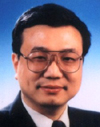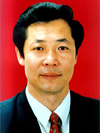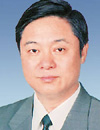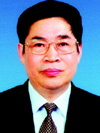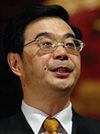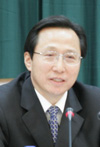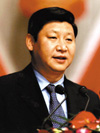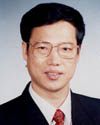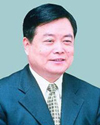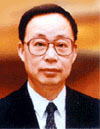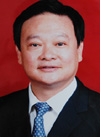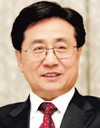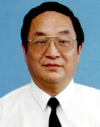Xinhua News Agency's website previously published a list of the new standing members, members, and alternate members of various provincial Party committees in China on July 3. This list signaled the end of election campaigns during the last half of 2006. Now the recent issue of China Newsweek has revealed four trends regarding personnel promotion and redeployment, and invited observers to comment.
The overall arrangements of officials of the Communist Party of China (CPC) have entered their final stages before the opening of the 17th National Party Congress later this year. Domestic and foreign observers generally regard Party Chief Hu Jintao's speech during a June 25 conference at the Central Party School as setting the focus of the political route for the 17th National Congress. At the conference Hu told provincial and ministerial level officials to improve the Party's leadership and abolish corruption. Observers also saw the end of the provincial party officials' shift elections as a mark of determining the organizational route for the 17th Party leadership.
Youth League officials to manage provinces
In recent years, officials from the Central Committee of the Communist Youth League of China (CYLC) have constantly been in the spotlight. This time, among the phalanx of provincial Party chiefs, former secretaries from the CYLC Central Committee once again have been granted noteworthy attention. Significantly, they all have similar political profiles.
For example, Li Keqiang, 52, was elected as the Party chief of
Liaoning Province last October 26. From November 1985 he served as the secretary of the Secretariat of CYLC Central Committee. Then he became the first secretary of the Secretariat. Four years later, Li took up the post of Party chief of rural
Henan Province. By the end of 2004, Li had become the Party chief of Liaoning, thus adding a record of managing an industrial region to his political resume.
Li Yuanchao, 57, elected as the secretary of the Secretariat of the CYLC Central Committee in 1983, did not immediately become a provincial chief like his colleague Li Keqiang. Formerly the director of the Information Office of the State Council from 1993-1996, he then served as vice minister of culture from 1996-2000. From October 2000, Li worked as the vice secretary and as a standing member of the Jiangsu provincial Party committee. Last November he was elected as the Party chief of
Jiangsu.
Zhang Baoshun, also 57, was employed as secretary of the Secretariat of the CYLC Central Committee in 1985. Previously elected as the secretary of the
Shanxi provincial Party committee, Zhang was the vice president of state-run Xinhua News Agency from 1993-2001. In July 2005, China's central Party committee appointed Zhang as the Party chief of Shanxi. Officially he was elected as the Party chief in last October.
Liu Qibao has a history similar to Zhang's. He was chosen as the Party chief of the
Guangxi Zhuang Autonomous Region last November 19. In 1985 he served as secretary of the CYLC's Secretariat, later becoming in 1993 the deputy editor-in-chief of the
People's Daily, the Communist Party's official newspaper. Liu was named the deputy secretary-general of the State Council and as a member of the Leading Party Group in 1994. In September 2000, Liu accepted the position of vice secretary of the Guangxi Party committee. In June 2006, the central Party committee decided to appoint him as the Party chief of Guangxi.
Yuan Chunqing, elected the vice secretary of
Shaanxi Party committee on May 25 of this year, belongs to the "New Generation" from the Communist Youth League's central committee. He worked as secretary of the CYLC Secretariat from December 1992 through September 1997. In the following two years, Yuan was appointed as the general secretary and as a standing member of the Central Discipline Inspection Committee of the CPC and was also named as the vice secretary of the Shaanxi Party committee. He became the governor of Shaanxi Province in February 2007.
Zhou Qiang, 47, is a new political star. He rose from the Youth League's central committee. Zhou was elected as the first secretary of Youth League's Secretariat in June 1998 and acquired the same position again in 2003. Zhou was elected as the vice secretary of
Hunan Party committee last November. In February he was elected as governor of Hunan Province.
Additionally, 53-year-old Han Changfu, the vice secretary of the Jilin Party committee and governor of
Jilin Province, is also regarded as one of the elite from the Youth League's central committee system. He once served as the director of Young Volunteers Work Department.
These provincial Party chiefs and vice chiefs from the Youth League are in the prime of their political life, China Newsweek said. They have experience in both central and regional work. They also have one more thing in common: high academic degrees. Zhang Baoshun and Liu Qibao hold Masters Degrees in Economics. Li Keqiang and Li Yuanchao both hold Doctoral Degrees in Economics and Jurisprudence. Yuan Chunqing is a Post Doctoral researcher in economics.
"Go North" and "Go West"
As the municipalities and economic centers for south and north China, Shanghai and Tianjin will always hold international attention during Party personnel allocations. Xi Jinping and Zhang Gaoli, both Party chiefs recently appointed to the two municipalities, have similar political resumes. They both are top officials of southern seashore's special economic zones, managers of east China's big economic provinces, and chiefs of the municipalities.
Xi Jinping, born in 1953, was a standing member of
Fujian Province's Xiamen municipal Party committee and the vice mayor of the city. He was elected as governor of Fujian Province in January 2000; later he became the vice secretary of
Zhejiang provincial Party committee. In March 2007, CPC Central Committee decided to appoint Xi Jinping as a standing member and as the secretary of Shanghai Party committee. On May 28, he was officially elected as Party chief.
Zhang Gaoli became
Guangdong Province's vice Party chief and Shenzhen's municipal Party chief from 1998. He was redeployed as vice governor and as acting governor of
Shandong Province. The following November he was appointed as the Shandong Provincial Party boss. This March, CPC Central Committee decided to name him as a member, as a standing member and as the secretary of Tianjin Party committee. On June 2, he was officially elected as Party chief.
Observers generally think the two men have great experiences in their political resumes and that they will be effective leaders at their new positions.
Wang Min, elected as the Jilin provincial Party chief on May 18, also walks south to north: he shouldered responsibility as the Party chief of Suzhou city in May 2002 and then he was elected as a standing member of Jiangsu provincial Party committee in August. In October 2004, he was named the vice Party secretary of northern Jilin Province.
In recent years, top officials also have had a new trend of heading west.
Meng Jianzhu, Shanghai's former vice Party secretary, was appointed as a member, as a standing member and as the secretary of the
Jiangxi provincial Party committee in April 2001. He was elected as the Party chief again last December.
Jiang Jufeng, Wenzhou City's former Party chief and a standing member of the Zhejiang provincial Party committee, was appointed as the vice Party chief of
Sichuan Province in March 2002. Then, on May 16 this year he was elected the vice secretary of Sichuan provincial Party committee.
Lin Shusen served as a standing member of the Guangdong provincial Party committee and as Guangzhou City's Party chief before being elected as the vice Party secretary of
Guizhou Province on April 28.
Yu Youjun served also in Guangdong Party committee as a standing member and as Shenzhen's mayor before he was named Hunan's vice Party chief. Yu was elected as the acting provincial governor in July 2005 and the vice Party secretary of Shanxi Province last October.
Observers feel that when these seashore officials went west, they could bring their valuable administrative experience to mid-western economic zones. They would also help boost the local economies. At the same time, these officials would learn more through managing a new region in China.
Ministers' landing on regional administrative posts
Wang Yang, born in 1955, was appointed as the Party chief of
Chongqing Municipality in 2005, which was seen as an omen of the CPC Central Committee's trend for appointing relatively young top officials. Although Wang is young he has a rich political life. He was elected as the vice Party secretary of
Anhui Province when he was just 38 years old. Later, in September 1999, he was appointed as the vice minister of the National Development and Reform Commission and deputy secretary-general of the State Council and member of the Leading Party Group.
Zhao Hongzhu is another minister-level official who went to administer at the regional Party committee. Since November 2003 he served as a standing member of CPC Central Commission for Discipline Inspection and vice minister of Organization Department of the CPC Central Committee before being assigned to
Zhejiang Province in March. Zhao was elected as the provincial Party chief in June.
Yu Zhengsheng, a member of the Political Bureau of the CPC Central Committee, was again elected as the Party chief of
Hubei Province in June. In November 2001, he served as the minister of construction and the ministry's Party secretary. He took the same route from central official to provincial top position as Hubei provincial Party chief.
Observers said that the central officials would bring farsighted vision to their respective provinces. Moreover, regional experience will make their political resumes even more compelling.
Click here for more information about local leadership
(China.org.cn by Zhang Rui, August 9, 2007)

